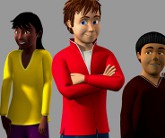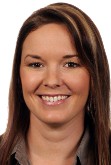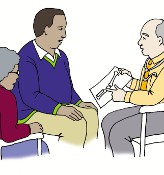SECRET AGENT SOCIETY TRAINING COMING TO LONDON
 Australian Clinical Psychologist Kathleen Davey will host practitioner training for the Secret Agent Society (SAS) program in London on October 3 and 4, 2012.
Australian Clinical Psychologist Kathleen Davey will host practitioner training for the Secret Agent Society (SAS) program in London on October 3 and 4, 2012.
SAS is an ideal social skills intervention for educators, therapists and other professionals who work with children with high-functioning Autism Spectrum Conditions such as Asperger's Syndrome. It typically includes 12 weekly child and parent group meetings, a four-level computer game, teacher tip sheets and booster sessions. SAS can be used in school settings, community centres and private clinics.
This highly engaging, espionage-themed program is attracting international attention following a randomised, controlled trial which found 76 per cent of children who did the program improved from having significant social skill delays to showing skills within the range of most children. This is currently the most clinically significant change published in the world for a social skills program with children with high-functioning autism.

Australian Clinical Psychologist Kathleen Davey
The two-day training course includes multimedia presentations, live session footage, group discussions, opportunities to practise delivering content and follow-up supervision. Registrations close August 29. Email This email address is being protected from spambots. You need JavaScript enabled to view it. to register or download application documents from http://www.sst-institute.net/uk/professionals/practitioner-training/.
"This program is a great resource for clinicians, teachers and families. It provides the skills and resources needed to fully engage children on the autism spectrum – and make learning fun! I highly recommend the Secret Agent Society program as the resources are innovative, well targeted and can make a big difference to how children on the spectrum manage their home and school life."
Dr Tony Attwood, International expert on Asperger's Syndrome


 'Children who are blind or have low vision need hands on materials to hold them captivated and listening'
'Children who are blind or have low vision need hands on materials to hold them captivated and listening'  NSW Council for Intellectual Disability (NSW CID) is the peak body representing the rights and interests of people with intellectual disability in NSW.
NSW Council for Intellectual Disability (NSW CID) is the peak body representing the rights and interests of people with intellectual disability in NSW.